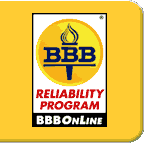Course Information
Course description:
This course includes exponents, polynomials, radicals, radical
expressions, graphing in the plane, functions, linear and quadratic
equations, linear inequalities, systems of linear equations and
inequalities, and appropriate applications.
Course date: Monday January 9, 2006 through Saturday May 5, 200
Prerequisite(s): MT 065 or equivalent as determined by KCTCS placement
examination
Textbooks
Required reading:
Introductory Algebra, Bittinger, Marvin A., Addison Wesley/Benjamin
Cummings, 9th, ISBN:020174631X
OR
Required reading:
Introductory Algebra, Bittinger, Marvin A., Addison Wesley/Benjamin
Cummings, 9th, Standalone ISBN:032119991X
Course Competencies
Upon successful completion of 120 MT as described in the
grading/evaluation policy, the student will be able to do the following:
1. Factor a polynomial completely.
2. Solve equations involving rational expressions .
3. Distinguish between a function and a relation.
4. Find the domain and range of a function.
5. Distinguish between a relation and a function.
6. Graph linear functions and find the slope .
7. Recognize the different forms of a linear equation.
8. Find the intercepts of a linear equation.
9. Solve systems of linear equations using different methods.
10. Solve linear inequalities in one and two variables .
11. Simplify radical expressions.
12. Solve equations involving radical expressions.
13. Perform basic operations on complex numbers .
14. Solve quadratic equations by factoring.
15. Solve quadratic equations by the square root property .
16. Solve quadratic equations by completing the square.
17. Solve quadratic equations using the quadratic formula.
18. Graph quadratic functions.
19. Solve applications problems using the above competencies in real
world application
Course Outline
I. Factoring
A. Trinomials
1.Leading Coefficient not equal to one
2. Square of binomial
B. Difference of Squares
C. Sum of Cubes
D. Difference of Cubes
E. Special Factoring
II. Rational Expressions
A. Multiplying and simplifying
B. Division and reciprocals
C. Adding rational expressions
D. Subtracting rational expressions
E. Solving rational equations
F. Applications using rational equations and proportions
III. Graphs, Functions, and Applications
A. Plotting points in the plane
B. Functions
C. Domain and range
D. Linear functions and slope
E. Forms of linear equations
F. Applications of linear equations
IV. Systems of Equations
A. Solve by graphing
B. Solve by substitution
C. Solve by elimination
D. Solve applications with two equations
E. Business and Economic applications
V. Inequalities
A. Interval notation
B. Compound inequalities
C. Absolute value equations and inequalities
D. System of linear inequalities in two variables
E. Applications
VI. Radical Expressions, Equations, and Functions
A. Radical expressions and functions
B. Rational numbers as exponents
C. Simplifying radical expressions
D. Division of radical expressions
E. Solving radical equations
F. Applications involving radicals
G. Introduction to complex numbers
VII. Quadratic Equations and Functions
A. Solving quadratic equations by factoring
B. Solving quadratic equations using the square root property
C. Solving quadratic equations by completing the square
D. The quadratic formula
E. Applications involving quadratic equations
F. Quadratic functions
G. Graphing quadratic functions
Course Structure
Topics from the course outline will be discussed and
techniques of
problem solving will be demonstrated. Students will be assignee
homework over the topic. Students are expected to complete the
homework, ask questions on it, be able to discuss it in the FORUM.
Technology/Media
This is an internet class using a course management system
known as
CourseCompass. The minimum hardware/software requirements are:
To work with CourseCompass 4.5, your computer must meet
the
following system requirements
Operating system
· Windows® 2000 and XP
· Macintosh® 9.2 and OS X Version 10.1 and 10.2
Internet connection:
· Minimum connection speed of 28.8 kbps (kilobits per second)
Internet browsers.
· Microsoft® Internet Explorer, Version 5.x up to Version 6.0 or
· Netscape® Navigator, Version 7.0
Additional software
· Adobe Reader
· MyMathLab
Homework
Homework will be assigned at each class meeting. I expect
each
assignment to be completed by the beginning of the next class meeting.
It is the students’ responsibility to complete each assignment and to ask
questions about the homework.
Grading Policy
The students’ performance will be determined by 10 online
quizzes, two
online class tests and a proctored final exam according to the following
distribution of percents .
Final Exam 40%
Class Tests 30%
Quizzes 30% I will give up to 10 bonus points for those students
who actively participate in the FORUM.
Final Exam
The final exam will be comprehensive and must be taken in
a proctored
environment at your home institution during the scheduled Final period.
Evaluation Policy
The students’ final letter grade will be determined
according to the
following scale:
| Range |
Grade |
| 90 – 100 |
A |
| 80 - 89 |
B |
| 70 - 79 |
C |
| 60 – 69 |
D |
| 0 - 59 |
E |
The FORUM
The FORUM is the discussion area of the course. Students
are expected
to read the contents and respond to posting there. I will give bonus
points for active participation in this area of the course. A post is
considered relevant if it promotes understanding of the course material.
Make up Policy
Make-ups are available only if there is documented
evidence of
circumstances beyond your control.
Attendance Policy
This is a virtual class and no formal attendance is
required. Students are
expected to stay current with the course according to the posted
schedule. They are expected to log on regularly and to participate in the
course discussions. Students who are inactive for an extended period of
time will be dropped from the course.
Withdrawal Policy
From the last day to drop without a grade through the date
of the midterm
the student may withdraw from the course and receive a grade of
“W” if the student withdraws according to college procedure. From the
date of the mid- term through the last day of class the student may
withdraw after consultation with the instructor.
ADA Statement
Each KCTCS college has a coordinator to assist students
with their
disabilities. Students with disabilities who desire academic
accommodations must provide the coordinator with current
documentation of their disability including evidence of the need for
academic accommodations. If you need an accommodation because of a
documented disability, you are required to register with disability
support services located in the Counseling Center on each campus.
Please do not request accommodations directly from your instructor. If
you require assistance during an emergency evacuation, notify disability
support services immediately. Disability support service providers are
listed in the link below.
Disability support service providers
KCTCS Academic Offenses
2.3.1.1 Plagiarism
Plagiarism is the act of presenting ideas, words, or
organization of a
source, published or not, as if they were one’s own. All quoted material
must be in quotation marks, and all paraphrases, quotations, significant
ideas, and organization must be acknowledged by some form of
documentation acceptable to the instructor for the course.
Plagiarism also includes the practice of employing or
allowing another
person to alter or revise the work that a student submits as the student’s
own. Students may discuss assignments among themselves or with an
instructor or tutor, but when the actual material is completed, it must be
done by the student and the student alone. The use of the term
“material” refers to work in any form including written, oral, and
electronic.
All academic work, written or otherwise, submitted by a
student to an
instructor or other academic supervisor, is expected to be the result of
the student’s own thought, research, or self-expression. In any case in
which a student feels unsure about a question of plagiarism involving
the student’s work, the student must consult the instructor before
submitting the work.
2.3.1.2 Cheating
Cheating includes buying, stealing, or otherwise obtaining
unauthorized
copies of examinations or assignments for the purpose of improving
one’s academic standing. During examinations or in-class work,
cheating includes having unauthorized information, and/or referring to
unauthorized notes or other written or electronic information. In
addition, copying from others, either during examinations or in the
preparation of homework assignments, is a form of cheating.
2.3.1.3 Student Co-Responsibility
Anyone who knowingly assists in any form of academic
dishonesty
shall be considered as guilty as the student who accepts such assistance.
Students should not allow their work to be copied or otherwise used by
fellow students, nor should they sell or give unauthorized copies of
examinations to other students.
2.3.1.4 Misuse or Student Falsification of Academic
Records
The misuse or actual or attempted falsification, theft,
misrepresentation,
or other alteration of any official academic record of the college is a
serious academic offense. As used in this context, “academic record”
includes all paper and electronic versions of the partial or complete
academic record.



